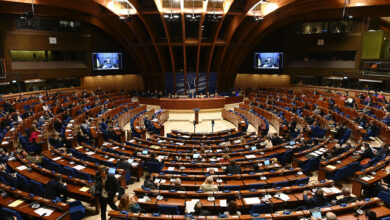The European Union Commission said Friday that Ukraine should be considered a candidate state. It is now up to the 27 EU member states to decide whether or not they agree.
Here are key things to know about Ukraine’s bid to join the EU:
What is the process for becoming a part of the EU? On paper, the process is relatively straightforward. A country applies and the commission gives a verdict on whether or not it should be considered for candidacy.
As European Commission President Ursula von der Leyen made clear on Friday, Ukraine will still have to meet a series of criteria before proper accession negotiations can begin, even if the EU 27 agree to accept its candidate status this week.
Then, when the leaders of the EU member states have agreed, it must then be ratified in the EU Parliament and by the legislative branches of each member state’s government.
How do EU countries feel about Ukraine joining the EU? This is where it starts to get complicated. While the EU and its 27 members have broadly supported Ukraine in its war effort, having a country that’s currently at war start the accession process raises all sorts of issues.
There are a number of candidate states that have been in the accession process for years, and have in some cases had their accession slowed down because of domestic political instability. One example of this is Turkey, whose application has been essentially frozen following fears over a backslide over the rule of law and human rights.
How long would it take? It really depends on what state Ukraine is in when the war ends. It seems highly unlikely that Ukraine will be anywhere near meeting the criteria to even start negotiations for a significant period of time after the end of the war. Aside from rebuilding, Ukraine will have to make the transition from a country operating under various degrees of martial law and curfews to a functioning democracy.
The average time for a country to join the EU is four years and 10 months, according to the London think tank UK in a Changing Europe.




